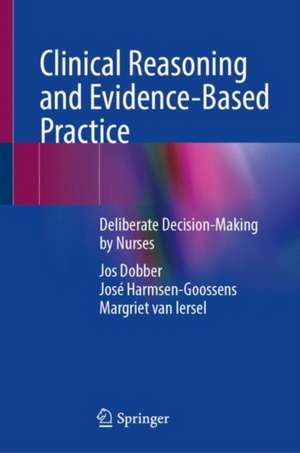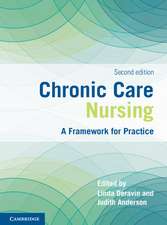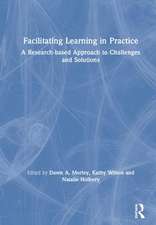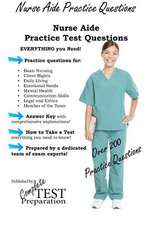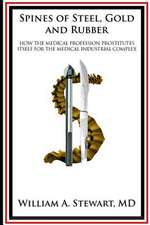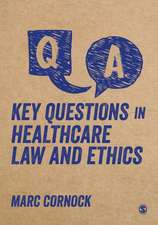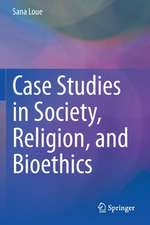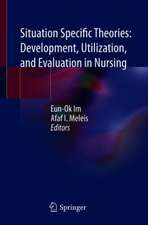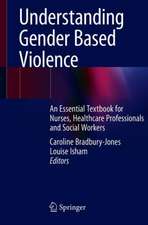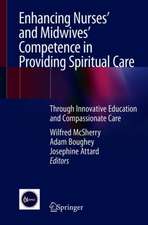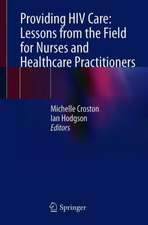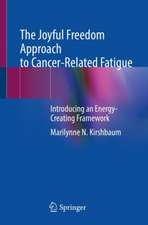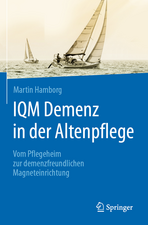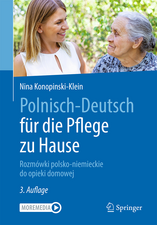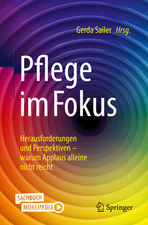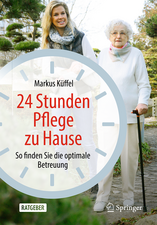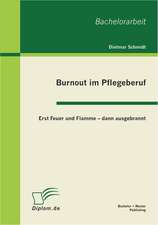Clinical Reasoning and Evidence-Based Practice: Deliberate Decision-Making by Nurses
Autor Jos Dobber, José Harmsen, Margriet van Ierselen Limba Engleză Hardback – 2 oct 2023
This book helps nursing students increase the quality of their clinical reasoning and therefore the quality of care. It teaches students to recognize when clinical reasoning is needed, and what reasoning is involved, and to avoid reasoning errors. This is important for nurses, since good quality of their clinical reasoning leads to a good quality of their decisions. Thus, it is directly connected to better nursing care.
This volume is based on current knowledge about learning complex cognitive skills. From this knowledge, four sets of standard questions have been formulated that allow students to develop cognitive scripts for reasoning about diagnosis, etiology, prognosis, and interventions. Special attention is payed to diversity-sensitive reasoning in this English edition. From the 4C/ID model, a scientific educational whole task model for learning and developing and complex cognitive skills, complexity levels, learning tasks and subtask exercises are included. Learning clinical reasoning is supported with case videos and flash lectures, among other things. It consists of three parts: the first part, on clinical reasoning, is written for first- and second-year bachelor students in nursing. Part two, on evidence-based practice (EBP), is also suitable for later years. It teaches students to read and critically appraise scientific articles, and to assess whether they can be used in their own practice. Part three contains more in-depth information, extra explanations, examples, and material that teachers can use in a flexible way. This book is illustrated with videos.
The translation from Dutch to English was done with the help of artificial intelligence (machine translation by the service DeepL.com). The authors have subsequently revised the text further in an endeavour to refine the work stylistically.
Preț: 390.38 lei
Preț vechi: 410.93 lei
-5% Nou
Puncte Express: 586
Preț estimativ în valută:
74.70€ • 77.99$ • 61.82£
74.70€ • 77.99$ • 61.82£
Carte disponibilă
Livrare economică 15-29 martie
Livrare express 01-07 martie pentru 46.20 lei
Preluare comenzi: 021 569.72.76
Specificații
ISBN-13: 9783031270680
ISBN-10: 3031270681
Pagini: 292
Ilustrații: XXVI, 292 p. 20 illus. With online files/update.
Dimensiuni: 155 x 235 x 22 mm
Greutate: 0.75 kg
Ediția:1st ed. 2023
Editura: Springer International Publishing
Colecția Springer
Locul publicării:Cham, Switzerland
ISBN-10: 3031270681
Pagini: 292
Ilustrații: XXVI, 292 p. 20 illus. With online files/update.
Dimensiuni: 155 x 235 x 22 mm
Greutate: 0.75 kg
Ediția:1st ed. 2023
Editura: Springer International Publishing
Colecția Springer
Locul publicării:Cham, Switzerland
Cuprins
Part 1 Clinical reasoning.- 1. Background knowledge.- 2. Decision on diagnosis: what is the problem?.- 3. Decision on etiology: what caused the problem?.- 4. Decision on prognosis: what can be achieved?.- 5. Decision on therapy: what can we do about the problem?.- Part 2 Evidence-based practice.- 6. Clinical reasoning and evidence-based practice.- 7. What is the problem: how to appraise scientific articles on diagnostic tests?.- 8. What caused the problem: how to appraise scientific articles on etiological factors?.- 9. What can be achieved: how to appraise scientific articles on prognostic research?.- 10. What can we do about the problem: how to appraise scientific articles on interventions?.- 11. How to reach a better understanding of the patients' perspective: reading and appraising qualitative research.- Part 3 Extra's.- Chapter 12. Deepen your knowledge.- Chapter 13. Education about clinical reasoning and evidence-based practice.
Notă biografică
Dr. Jos Dobber is a mental health nurse, educational scientist and health scientist. He is senior lecturer and reseacher at the Bachelor and Master Education in Nursing (Amsterdam University of Applied Sciences), with a special focus on content and consistency of the curriculum. He is an expert on Motivational Interviewing, and on the learning and didactics of clinical reasoning and evidence-based practice.
José Harmsen-Goossens MSc is a general health care nurse and nursing scientist. She is lecturer at the Bachelor Education in Nursing (Amsterdam University of Applied Sciences). Her core task as a teacher is clinical reasoning and coordination of education. In addition, she provides workshops in the country on clinical reasoning to graduate nurses.
Dr. Margriet van Iersel is a mental health nurse, educational scientist and programme leader of a Master in Mental Health Nursing. She is senior lecturer at the Bachelor and Master Education in Nursing (Amsterdam University of Applied Sciences). She has a special interest for curriculum-design, specifically the 4C/ID-model, and she brings in her expertise into the Bachelor and Master nursing curriculum.
Textul de pe ultima copertă
This book helps nursing students increase the quality of their clinical reasoning and therefore the quality of care. It teaches students to recognize when clinical reasoning is needed, and what reasoning is involved, and to avoid reasoning errors. This is important for nurses, since good quality of their clinical reasoning leads to a good quality of their decisions. Thus, it is directly connected to better nursing care.
This volume is based on current knowledge about learning complex cognitive skills. From this knowledge, four sets of standard questions have been formulated that allow students to develop cognitive scripts for reasoning about diagnosis, etiology, prognosis, and interventions. Special attention is payed to diversity-sensitive reasoning in this English edition. From the 4C/ID model, a scientific educational whole task model for learning and developing and complex cognitive skills, complexity levels, learning tasks and subtask exercises are included. Learning clinical reasoning is supported with case videos. It consists of three parts: the first part, on clinical reasoning, is written for first- and second-year bachelor students in nursing. Part two, on evidence-based practice (EBP), is also suitable for later years. It teaches students to read and critically appraise scientific articles, and to assess whether they can be used in their own practice. Part three contains more in-depth information, extra explanations, examples, and material that teachers can use in a flexible way.
The translation from Dutch to English was done with the help of artificial intelligence (machine translation by the service DeepL.com). The authors have subsequently revised the text further in an endeavour to refine the work stylistically.
This volume is based on current knowledge about learning complex cognitive skills. From this knowledge, four sets of standard questions have been formulated that allow students to develop cognitive scripts for reasoning about diagnosis, etiology, prognosis, and interventions. Special attention is payed to diversity-sensitive reasoning in this English edition. From the 4C/ID model, a scientific educational whole task model for learning and developing and complex cognitive skills, complexity levels, learning tasks and subtask exercises are included. Learning clinical reasoning is supported with case videos. It consists of three parts: the first part, on clinical reasoning, is written for first- and second-year bachelor students in nursing. Part two, on evidence-based practice (EBP), is also suitable for later years. It teaches students to read and critically appraise scientific articles, and to assess whether they can be used in their own practice. Part three contains more in-depth information, extra explanations, examples, and material that teachers can use in a flexible way.
The translation from Dutch to English was done with the help of artificial intelligence (machine translation by the service DeepL.com). The authors have subsequently revised the text further in an endeavour to refine the work stylistically.
Caracteristici
Differentiates between clinical reasoning for diagnosis, etiology, prognosis, and for interventions Includes basic knowledge about clinical reasoning and more in-depth knowledge, illustrated with videos Helps to understand and to critical appraise the common research designs in healthcare scientific literature
